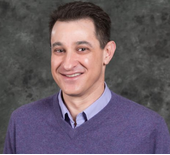Nearly 20 years after Idaho began experimenting with giving kids and parents a choice in education, efforts to expand school choice offerings here have stalled, while other states continue to raise the bar, improve and move ahead of us. And frankly, Idaho’s state officials seem uninterested in doing anything to catch up. It’s a fact that should have candidates for governor (and perhaps superintendent of public instruction) talking.

Idaho passed its first charter school legislation in 1998. Still, today, some 6,000 Idaho schoolchildren can’t get into the school of their choice and remain on waitlists. This fact was unknown to Superintendent of Public Instruction Sherri Ybarra’s Department of Education when I posed the question earlier this month. The waiting list data is based on information I got from individual charter schools.
Meanwhile, public school students in other states are no longer having to wait for a new charter school to open in order to enjoy their preferred education option. In Arizona, for example, students can take advantage of that state’s education savings program, which lets parents collect and spend education dollars in the manner they believe will best benefit their children, wherever or however that takes place.
In 2011, Arizona began using Empowerment Savings Accounts (sometimes referred to as Education Savings Accounts), allowing parents of kids with learning disabilities to shop for education services that best suit them. The program has been expanded over the years and, in April of this year, Arizona again upped the ante with a new law that will eventually allow all public school students of that state to spend state education dollars however they see fit—at private schools, on public school course offerings, on tutors, technology and so forth. Four other states have also adopted similar programs. Mississippi’s program is specific to kids with special needs. Additional states have introduced legislation to promote education savings and choice options. Idaho has not.
Through her spokesman, Ybarra, the state’s top public school official, declined to sit for questions about her position on Arizona’s program or the ones adopted or contemplated in other states. But, she said, “public taxpayer funds should not be used to fund private schools and one reason is the lack of accountability.” Because Arizona’s program, and others like it, don’t actually fund private schools but rather provide student-specific savings and spending options, I asked for additional clarification from Ybarra, whose spokesman, Jeff Church, provided vague and evasive answers. Both declined to comment on the pros of education savings accounts or what Ybarra might support in Idaho.
Church said the department no longer tracks the number of students who are stuck on charter school waiting lists. The state Public Charter School Commission doesn’t either, said the agency’s director, raising obvious questions about how the state could possibly invest in or focus on expanding choice if state officials don’t know how deep the problem is.
Too many Idaho schoolchildren are stuck in a public school education that doesn’t meet their needs. They’re trapped in a system that doesn’t work for them. But, it doesn’t have to be that way, and states are rapidly working to solve this problem. Idaho should be doing the same.
Written by Wayne Hoffman, executive director of the Idaho Freedom Foundation.
